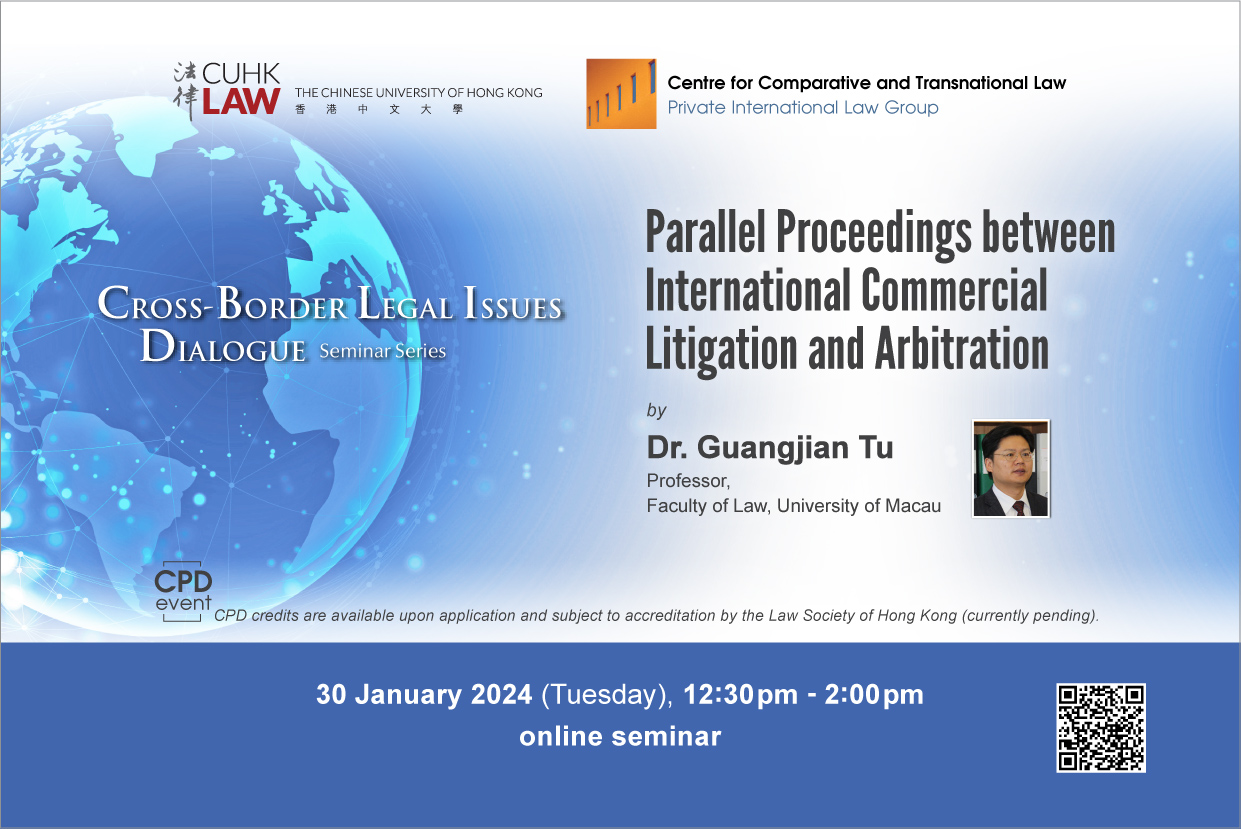Events
CCTL Cross-Border Legal Issues Dialogue Seminar Series – ‘Parallel Proceedings between International Commercial Litigation and Arbitration’ by Dr. Guangjian Tu
30 Jan 2024
12:30pm 2:00pm
Online (Zoom)
Dr. Guangjian Tu
Dr. Guangjian Tu is currently a Full Professor of Law, University of Macau, a life member of Clare Hall (Cambridge University), an elected associate member of the International Academy of Comparative Law and a Standing Member of the Chinese Society of Private International Law and also a Standing Member of the Association of Great China Judicial Studies. He is an editor for Chinese Journal of International Law and the global blog of www.conflictoflaws.net and regularly invited to review papers by international journals. He formally started his academic career at the University of Macau in September 2007. Since then, he has been teaching and researching in the field of Private International Law, especially Chinese inter-regional conflict of laws. So far, he has published three monographs and tens of academic articles in widely-circulated international journals and the core Mainland China academic journals.
Parallel proceedings in international commercial litigation between the courts of different countries have long been discussed and explored, for which the Brussels I Regulation in the EU provides a good model for solution although it is still a problem at the global level and an obstacle for the Hague Jurisdiction Project. However, it seems that so far no enough attention has been paid to the problem of parallel proceedings between international commercial litigation and arbitration. Theoretically, parties’ consent to arbitration will exclude the jurisdiction of states’ courts by virtue of the rules set out in Article 2 of the New York Convention altogether. But the Convention fails to successfully eradicate parallel proceedings between arbitral tribunals and state courts, owing to its inherent defects. When a conflict arises between international commercial arbitration and litigation proceedings, a rational balance must be struck between the judiciary and the arbitral tribunal with a reasonable division of competence between the two bodies.
Different from parallel proceedings between two courts of different countries where usually both have jurisdiction and the question is only who should decide first, the jurisdiction of a national court and that of an arbitral tribunal excludes each other; similar to them, the problems with the former will also happen to the latter. Shall one always give “priority” to the arbitral tribunal to decide i.e. the issue of validity of the arbitration agreement for the purpose of respecting the doctrine of competence/competence? Can a simple lis pendens rule like that under the Brussels I Regulation work i.e. a national court or arbitral tribunal whoever is seized earlier shall decide when the issue of the validity of arbitration agreement is raised as a preliminary question in the national court? This presentation will try to explore an ideal model for the solution to this problem.
Language: English
CPD credits are available upon application and subject to accreditation by the Law Society of Hong Kong (currently pending).


